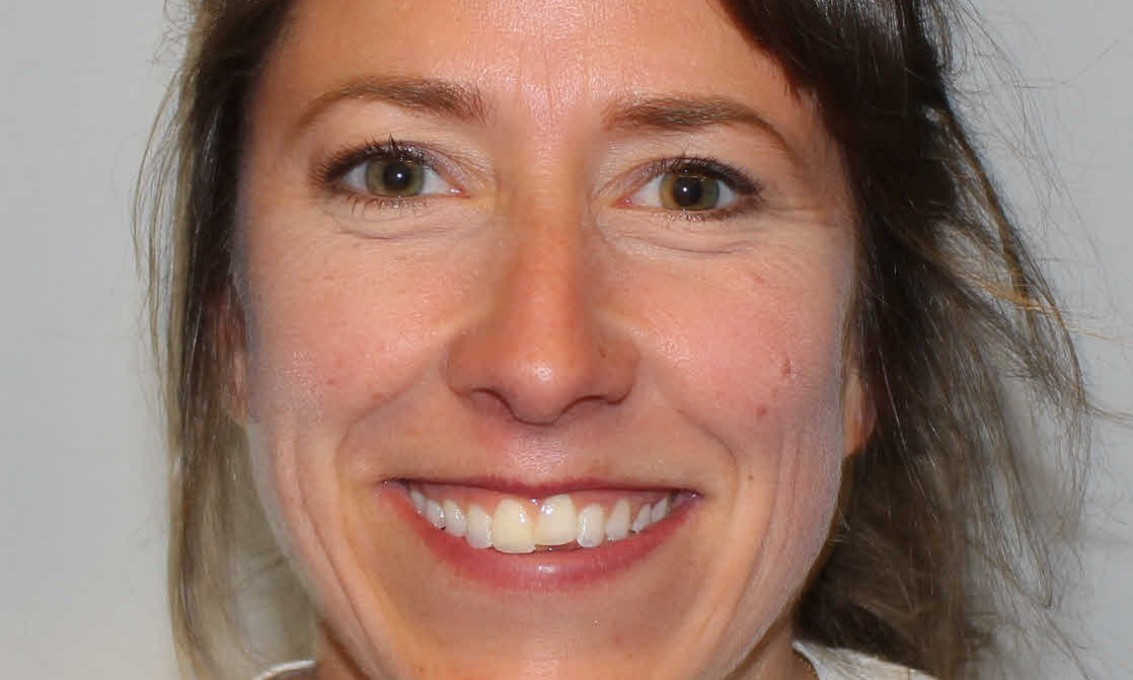Become a risk expert at a time when terrorism, pandemics, climate change and complex technological risks are some of the challenges facing society. With a master’s degree in Risk Analysis, you can analyse, assess, communicate, manage and govern all types of risk.
2 years (4 semesters)
English
August every year
About the study programme
Society is in a rapid development where conflicts, climate change, diseases and increasing energy needs put pressure on the world’s resources – and create new risk and safety challenges. Change and sustainable development of society is necessary. Working life needs good candidates who can contribute with high competence in risk.
- The master’s programme in Risk Analysis gives you a unique competence in understanding and handling risk. The programme covers all the elements of risk analysis in a broad sense: risk assessment, risk perception, risk communication, risk management and risk governance, policy related to risk, and risk science. Key topics related to safety, security and resilience are also covered.
- The study programme has an international profile with admission of international students and with all the courses in the program being taught in English.
- The programme is suitable for you with an ability to think analytically and who are interested in achieving an advanced understanding of risk – of what creates risk and how to achieve safety.
The study programme has two specialisations:
The specialisation in Risk Governance is relevant for students with different types of backgrounds. This specialisation emphasises risk management in a societal context (risk governance). The specialisation covers different perspectives on risk and society, as well as different types of management approaches and research methods.
The specialisation in Engineering and Technology is open to students with a bachelor's degree in engineering, technology, mathematics (including statistics), natural sciences or equivalent. This specialisation emphasises risk assessment and risk management. The specialisation has a technical profile and covers topics such as probability calculation and statistics, reliability analysis and technical safety.
Career prospects
The study programme in Risk Analysis gives advanced knowledge in fundamental topics within risk science. This is an attractive competence both in working life and in research. The study programme qualifies for several different types of positions in both the private and public sector, for example:
Risk analyst, advisor or consultant: Risk analysis is today in extensive use in both the private sector, for example, in the petroleum and energy industries, banking and finance, and the ICT industry; and in the public sector, for example, in health care, in urban and regional planning, and the planning and operation of public infrastructure. Risk analysis is also being used in an ever-increasing number of industries and sectors. This creates a need for candidates with strong risk analysis competence who can ensure proper assessment, characterisation, communication, management, and governance of risk. The study programme provides the necessary broad and general competence to work as a risk analyst, advisor or consultant in different sectors.
Manager: An important management task is to make decisions under uncertainty about future consequences, i.e., when faced with risk. Risk assessments constitute an important basis for decision-making in such situations. A high level of competence is then required in understanding and interpreting the results of risk assessments and in conducting risk evaluations. Furthermore, a high level of competence is needed in communicating risk and in understanding how risk is often perceived differently by lay people compared with in professional risk assessments. Finally, there is a need for high competence in risk management and governance, and in the formulation of risk policies to ensure acceptable risk.
Researcher: As a researcher, there are many opportunities to contribute to the development and expansion of various parts of the research front. Key fundamental questions studied in the risk field are: How to understand risk and uncertainty? How to express risk and uncertainty? How to determine what is acceptable risk? How to manage risk? UiS has a Ph.D. programme (doctorate program) in risk management and societal safety that offers research training in risk science.
A completed master’s degree in Risk Analysis with a grade point average of at least B and a minimum grade of B on the master’s thesis can qualify for admission to the PhD programme in science and technology with specialisation in risk management and societal safety at the University of Stavanger.
Learning outcomes
All study programmes at the UiS have a set of defined learning targets. Read more about the learning outcome for this study programme.
After having completed the master’s degree programme in Risk Analysis, the student shall have acquired the following learning outcomes, in terms of knowledge, skills and general competences:
Knowledge
K1: has advanced knowledge within the academic field of risk science, related to concepts, theories, principles, approaches, methods and models for understanding, assessing, characterising, communicating, managing and governing risk, safety and security.
K2: has specialised insight into risk assessment and risk management with an engineering theory and method profile, or in risk governance with a social science theory and method profile, depending on the chosen specialisation.
K3: has in-depth knowledge of theories and methods that form the basis for and that characterise risk science.
K4: can apply this knowledge to new types of problems and issues, in particular practical cases and problems in society, industry, business, etc., such as achievement of the UN sustainable development goals.
K5: can analyse scientific issues based on the scientific area’s history, traditions, uniqueness and place in society.
Skills
S1: can evaluate theories, principles, interpretations, methods and models within risk analysis.
S2: can develop and apply methods and models in risk analysis; depending on specialisation, methods for risk assessment, reliability analysis, cost-benefit analysis and risk perception analysis.
S3: can plan and conduct analyses (interpreted in a wide sense) in an independent manner of risk, safety and security, using the above knowledge.
S4: can use relevant methods for research and scientific/scholarly work in an independent manner.
S5: can analyse and deal critically with various sources of information and use them to structure and formulate scientific/scholarly arguments.
S6: can carry out an independent, limited research or development project under supervision and in accordance with applicable norms for research ethics.
General Competence
G1: can analyse relevant professional, occupational and research ethics issues.
G2: can apply their knowledge and skills to deal with questions related to risk analysis, and in new areas to carry out advanced work tasks and projects.
G3: is able to evaluate the applicability of different tools and approaches that are relevant to risk analysis, and examine the short- and long-term effects of different practices and solutions.
G4: can disseminate extensive independent work.
G5: is familiar with and can use the current terminology within the field.
G6: can communicate about scientific issues, analyses and conclusions within the field, with both specialists and the general public.
G7: can guide decision-makers and other stakeholders on how to understand, assess, manage and govern risk, safety and security.
G8: can contribute to innovation and in innovation processes.
Study plan and courses
Enrolment year: 2025
-
Compulsory courses
-
Foundations of Risk Analysis and Risk Science
Year 1, semester 1
Foundations of Risk Analysis and Risk Science (RIS505)
Study points: 10
-
Theories of Risk Perception and Risk Governance
Year 1, semester 1
Theories of Risk Perception and Risk Governance (RIS515)
Study points: 10
-
Risk Assessment, Economic Evaluation and Decisions
Year 1, semester 2
Risk Assessment, Economic Evaluation and Decisions (RIS525)
Study points: 10
-
Risk Management, Communication and Policy
Year 1, semester 2
-
Master's Thesis in Risk Analysis
Year 2, semester 3
-
-
Specializations
-
Risk Governance
-
Risk Governance - Compulsory courses
-
Risk, Society and Ethics
Year 1, semester 1
-
Research Methods in Risk, Safety, and Security Studies
Year 1, semester 2
Research Methods in Risk, Safety, and Security Studies (RIS660)
Study points: 10
-
-
Courses at UiS or exchange 3rd semester
-
Courses at UiS 3rd semester
-
Recommended electives 3rd semester
-
Terrorism and Security
Year 2, semester 3
-
Practical training in Risk Analysis
Year 2, semester 3
-
Applied Risk Analysis
Year 2, semester 3
-
Enterprise Risk Management
Year 2, semester 3
-
-
Other electives 3rd semester
-
Decisionmaking in Emergencies
Year 2, semester 3
-
Energy, Societal Safety and Sustainable Development
Year 2, semester 3
Energy, Societal Safety and Sustainable Development (SAM550)
Study points: 10
-
Accident Investigation
Year 2, semester 3
-
-
-
Exchange at Lund University, Sweden
-
Exchange at University of Trento, Italy
-
More options
-
-
-
Engineering and Technology
-
Engineering and Technology - Compulsory courses
-
Probability and Statistics 2
Year 1, semester 1
-
Reliability Analysis
Year 1, semester 2
-
-
Courses at UiS or exchange 3rd semester
-
Courses at UiS 3rd semester
-
Recommended electives 3rd semester
-
Technical Safety
Year 2, semester 3
-
Practical training in Risk Analysis
Year 2, semester 3
-
Applied Risk Analysis
Year 2, semester 3
-
Technical Safety Systems
Year 2, semester 3
-
-
Other electives 3rd semester
-
Investment Analysis
Year 2, semester 3
-
Project Management
Year 2, semester 3
-
Offshore Field Development
Year 2, semester 3
-
Enterprise Risk Management
Year 2, semester 3
-
Statistical Modeling and Simulation
Year 2, semester 3
-
Statistical Learning
Year 2, semester 3
-
-
-
Exchange at Lund University, Sweden
-
Exchange at University of Bologna, Italy
-
Exchange at INSA Toulouse, France
-
Exchange at Politecnico di Milano University
-
More options
-
-
-
Academic requirements
Admission requirements for the specialisation in Risk Governance
A bachelor's degree within social sciences, natural sciences, psychology, pedagogy, social anthropology, law, geography, engineering, mathematics, statistics, biology, chemistry, physics, urban planning and societal safety, political science, economics. Other backgrounds that may meet the requirements for admission include: customs and border management, police, teacher education, health and social care, journalism, hotel management, and tourism management, social sciences, health and social sciences, economics and administration, history, and philosophy of science. Applicants with other types of educational background will be evaluated by the admission committee.
Admission requirements for the specialisation in Engineering and Technology
A bachelor's degree in engineering, technology, mathematics (including statistics), natural sciences or equivalent is required. Applicants must have at least 20 ECTS credits in mathematics/statistics/calculus. At least 5 ECTS credits must be statistics.
All applicants
Admission to this master's programme requires a minimum grade average comparable to a Norwegian C (according to ECTS Standards) in your bachelor's degree. Applicants with a result Second-class lower Division or lower are not qualified for admission.
Supplementary rules for admission (PDF).
Application and admission
Contact
For inquiries regarding admission to international Master's programmes, send an email to: admissions@uis.no
Student life at UiS
Student association:
Student exchange
By going on exchange to one of our partner institutions abroad as part of your studies, you will have an opportunity to get a unique education. In addition to improving your career opportunities, you grow as a person and gain the ability to greater reflect on the topics you study as part of your degree.
Schedule for the exchange
Students can go on a study abroad experience during the 3rd semester of the master's programme in Risk Analysis.
This semester consists of 30 ECTS credits of electives. During the exchange semester you can choose courses similar the master program specialisation. The courses you want to take abroad must be approved by the department. It is important that the courses from abroad not overlap with courses you have already taken. Some advice is to think about your specialisation and your field of interest.
Recommended institutions:
Specialisation: Risk Governance
- Lund University, Sweden
- University of Trento, Italy
- Catholic University of Portugal, Lisbon, Portugal
- Mid Sweden University, Sweden
Specialisation: Engineering and Technology
- Lund University, Sweden
- Politecnico di Milano, Italy
- University of Bologna, Italy
- INSA Toulouse, France
More opportunities
In addition to the recommended universities listed above, The University of Stavanger has several agreements with universities outside Europe that are applicable to all students at The University of Stavanger, provided that they find a relevant course offering. Within the Nordic region and the Baltics, all students can use the Nordlys and Nordtek networks.
Contact your Study Adviser at the Faculty if you have questions about guidance and pre-approval of courses.
General questions about exchange:
Go to the exchange guide in the Digital student service desk
See where you can travel
Frequently asked questions
Is it possible to complete the study part-time, or as distance learning?
The programme is set up as a full-time programme, and there are many compulsory group-based assignments in almost all courses. We therefore do not recommend taking the study as distance learning. As the study is a full-time study, it is not possible to get a part-time admission, but a student with admission to a 2-year master's degree has access as a student for three years and can therefore also distribute the courses / study over three years instead of two years.
I have previously passed courses at another educational institution. Can I get any of these courses approved to a new degree?
Yes, it is possible to apply for approval of previously passed courses that are not part of the admission basis to a new degree.
Is it possible to apply for leave from studies?
Yes, it is entirely possible to apply for leave from studies.
Do I have the opportunity to start an exchange during my studies?
The programme is set up for exchange in the 3rd semester.
Is there a student union related to this study programme?
Contact
Faculty Administration TN
Kontor for utdanningsadministrative tjenester
Department of Safety, Economics and Planning




